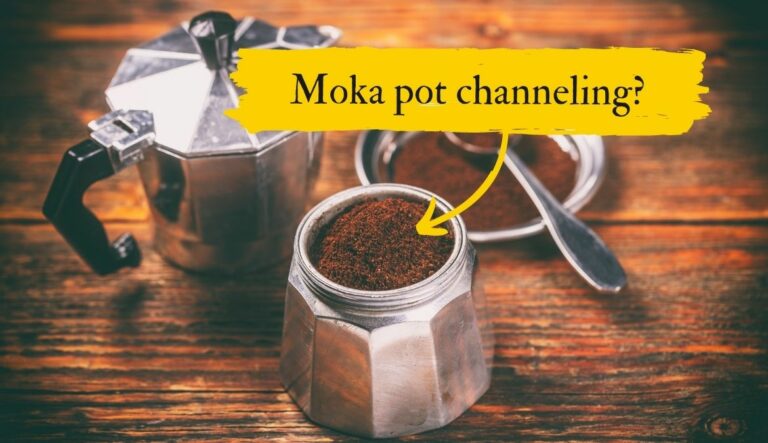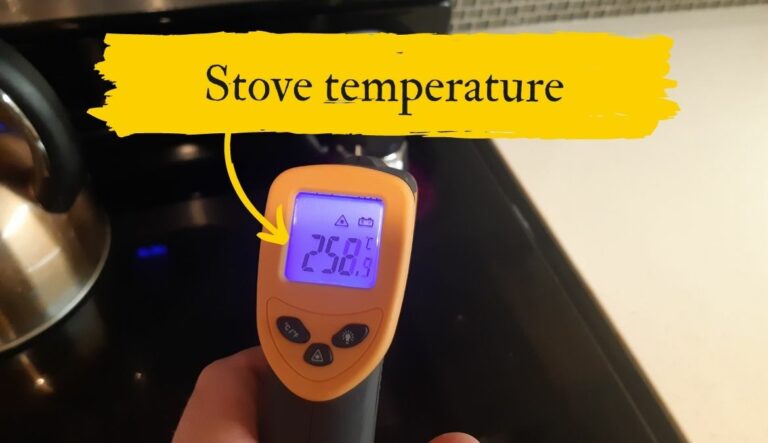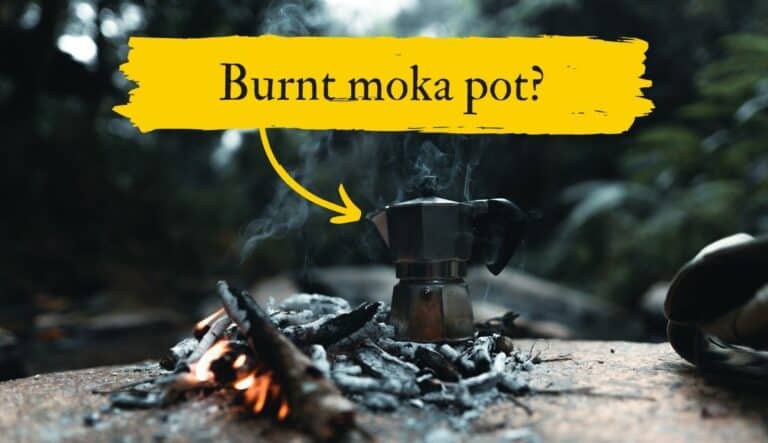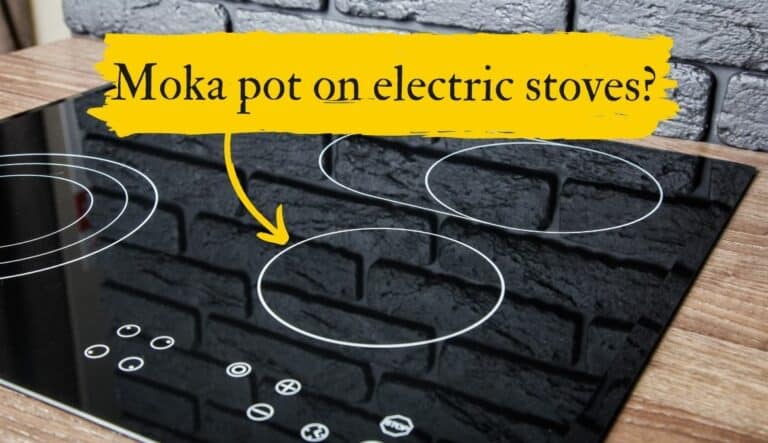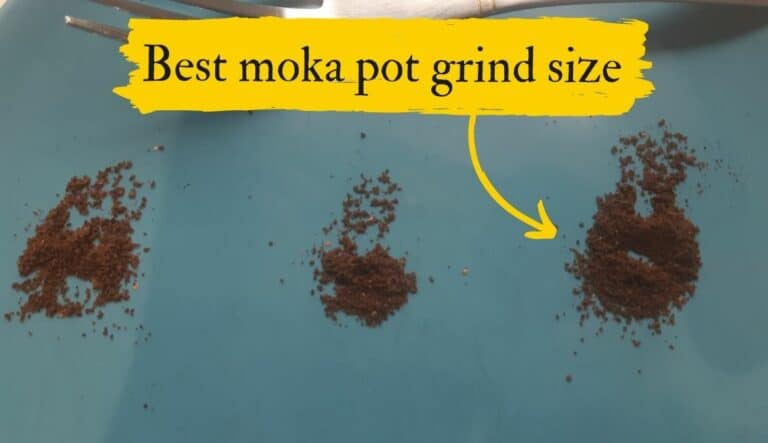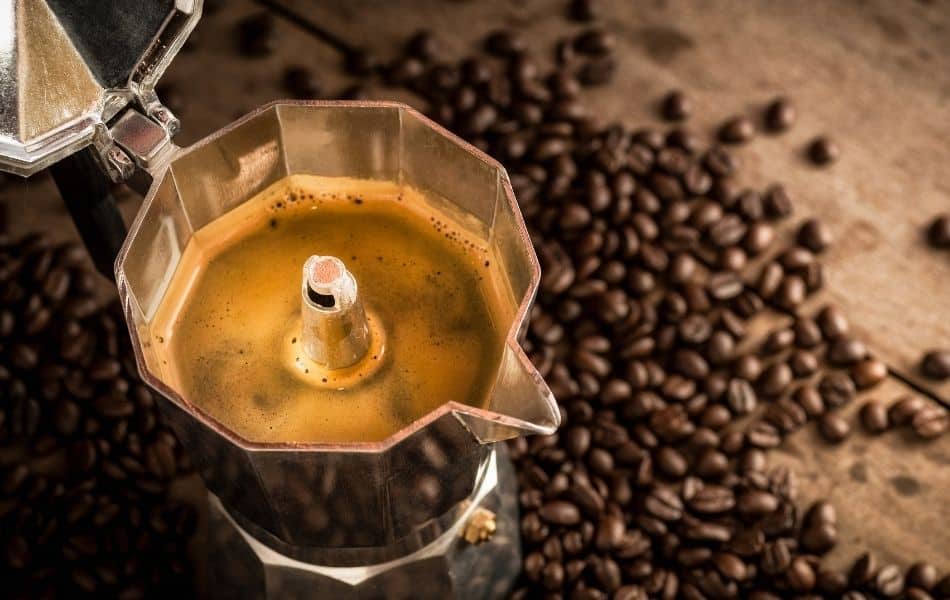
Let’s be honest; no one brews their coffee in a Moka pot because it’s convenient. You have to work a little for your caffeine fix, but it’s usually worth it because of the rich, full flavor you get from a Moka pot brew. It is understandable, then, that you’d be a little frustrated if you spent some time making your Moka pot coffee only for it to come out tasting a little on the sour side.
So, why is my Moka pot coffee sour? Sour Moka Pot coffee is usually caused by under-extracting the coffee beans, which means less of the sugars locked in the coffee grains make their way into the liquid. This happens when beans are not ground finely enough, the coffee-to-water ratio is too low, or the water temperature is low.
There are other things that can bring on too much sourness, however. If you’ve ever found yourself frustrated asking, “why is my Moka pot coffee sour?!” read on as we take a deep dive.
What Causes Sour Tasting Moka Pot Coffee?
There are a few things that can cause your Moka pot brew to turn out sour. As we hinted at above, there are a few things that can cause this problem, and it’s handy to know this if you are a Moka person, even if you like your coffee sour.
That way, you’ll always be able to dial in the flavor to suit. But, before we get into the meat of this topic, let’s go over a couple of the less common reasons you might be experiencing sour coffee.
Low-quality aluminum Moka Pots may add sour or metallic flavors
Aluminum is a popular material for Moka pots for a lot of reasons. It is light, making it suitable for camping trips and general travel, it doesn’t corrode easily, meaning it should last longer, and it is pretty durable. One of the downsides, however, is that it can sometimes leach some of the taste of the metal into the coffee itself, particularly if it is a cheap Moka pot.
Granted, this type of complaint only tends to come up with the more discerning coffee drinkers, but if you are finding your coffee to be too sour and you are using an aluminum Moka pot, you may want to consider switching to something else.
Coarsely ground coffee beans add sourness
Hot water extraction relies on the interaction between the water and the thing it is extracting from; this much is straight forward. What is a little less intuitive, however, is the fact that larger coffee grains mean less efficient extraction.
You see, the water can only achieve extraction where it comes in contact with the coffee, and the bigger the coffee grain, the more coffee there is locked inside the grain that the water won’t get to.
If you had an equivalent amount of coffee but made up of much finer granules, more of the surface area of the coffee is exposed to the water, and there is more opportunity for extraction.
A low coffee-to-water ratio causes Moka Pot sourness
The amount of water you put into your coffee is typically considered something that you do to make your drink stronger or weaker. Adjusting the ratio of water to coffee ratio in your drink can also help to shift the sourness levels back into your comfort zone… or make it more sour.
Low Moka Pot temperature will add sourness
Chemical reactions require energy, and in the bowels of a coffee pot, that energy comes from heat. The hotter you brew your coffee, the more hot water extraction you will get.
As a general rule, the more extraction you get, the less sour your Moka Pot coffee will be. That being said, getting a lot of extraction can turn the coffee bitter. As with many things in life, making the perfect cup of coffee is about finding the right balance.
How Coffee Grind Density Affects Moka Pot Sourness
Coffee grind density does indeed affect the flavor of your coffee, though not directly. That is, it is not the density itself that is changing your flavor, but the implications of that density.
For one thing, it is possible to achieve a higher density of coffee grind if the individual grains are smaller. Larger grains are irregularly shaped and leave more space between each other, making everything less dense. With smaller grains, you can fit a lot more coffee into the same space.
So, why does density matter? As we explained above, the more surface area that is exposed to your hot water, the more extraction can be achieved, and you can get more water extraction with multiple smaller grains of coffee than with one larger one. So while the density itself isn’t doing anything, having more densely packed coffee grinds means you have more coffee grind surface area to interact with the water.
How Brew Temperature Affects Sourness
We touched on this above, but let’s take a closer look at how the temperature at which you brew your coffee can affect the flavor. The chemical reactions between the coffee and the water need heat, and the amount of reaction you get from your heat is exponential. For every 50 degree Fahrenheit you raise the temperature, the number of chemical reactions doubles.
Again, you will need to do a little trial and error to find what your ideal heat is, as some people like their coffee to be weak and sour. You can go too far, of course, and make your coffee too bitter by brewing it a high heat. You can even inadvertently give your coffee a burned taste, which, unlike sourness and bitterness, is rarely a taste people are looking for.
How to Reduce the Sourness of Your Moka Pot Brew
So, now we know what causes your Moka pot coffee to come out sour; how about putting that problem right? We have already touched on most of the solutions above, but it can’t hurt to elaborate on them a little.
Don’t Be Afraid to Experiment
You’ve probably noticed that there’s a lot of trial and error in making the perfect Moka coffee, and a lot of that is unavoidable. We can’t give you a set temperature to brew your coffee at because we can’t know how you like your coffee, which unfortunately means you will have to figure it out for yourself.
The same goes for the density of the coffee grind. Try a few different ways of making your coffee, being sure to remember what you did each time so that you can repeat the process if you land on something you like.
Be Selfish
If you’re making coffee for other people, you really should find out how they like it. But if you are making coffee for yourself, it is okay to be selfish. If you like your coffee extra sour-or extra bitter for that matter-run with it. Don’t hold back because of any preconceived notions about how coffee is supposed to be; this your drink; enjoy it.
Keep Your Moka Pot Clean
This should probably go without saying, but you should always clean your Moka pot thoroughly when you are done using it. Not only can it become a breeding ground for mold and bacteria, it can affect the flavor of the coffee itself. And we’re sure you don’t want to spend all that figuring out the best density and temperature only to have the taste tainted by week old coffee grinds.
Practice What We Preach
The final tip for reducing sourness in your coffee is actually a combination of the things we mentioned earlier in the post. Get your water up to the right temperature, have the correct density (for your preferences, of course) and potentially replace your cheap aluminum Moka pot with something a little higher in quality.
Get Better Coffee
It’s been overlooked so far in this post because it is quite an obvious answer, but in the interests of being thorough, we’ll say it anyway. If you have tried everything we mentioned-and even if you haven’t and fancy a change-consider getting a new brand of coffee to rule out the original one, not being the cause of the sourness.
It is far more likely that the sourness stems from the way the coffee is being brewed, but you may find that a different coffee is more to your liking.
Final Thoughts
Moka pots are desirable for their simplicity and portability. There is no electrical element to burn out in a Moka pot as there would be in a kettle. There are no perishable parts to degrade or break as there would be in a french press.
All in all, the Moka pot is an extremely robust option-able to stand up to a lot of abuse, and it can be used anywhere you can have access to or can make a heat source, which is the main reason it is so popular among campers and travelers.
Sure, it takes a little getting used to at first, and you may need to experiment a little with the things we’ve mentioned in this post to get your coffee tasting just right, but with a bit of patience-and perhaps a few sour or bitter coffees-you’ll be having delicious coffee in no time.

